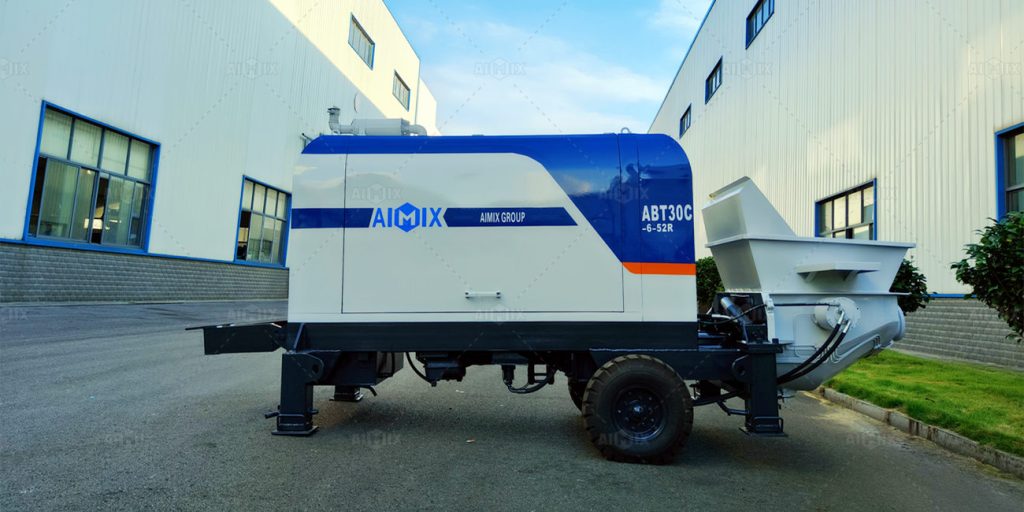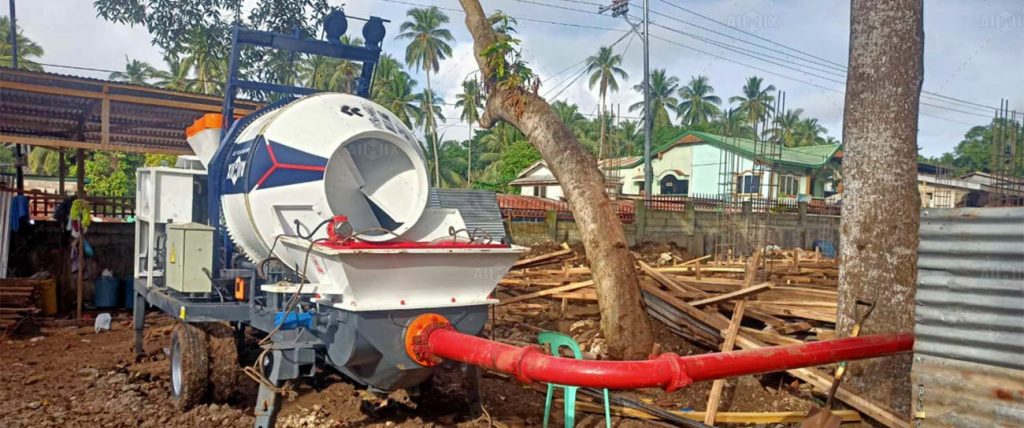Planning a school expansion project involves many considerations, and one of the most important is the cost of concrete delivery and pumping. For small to medium-scale projects, using a small concrete pump or other suitable equipment can improve efficiency, reduce labor costs, and ensure timely completion. Calculating the cost of a concrete pump requires analyzing several factors, from machine selection to project scope and operational expenses. This guide provides a comprehensive approach to estimating the total cost of using a concrete mixer with pump for sale or trailer pumps concrete for school construction and expansion.

Understanding the Project Requirements
The first step in calculating small concrete pump costs is understanding the scope of the school expansion. Determine the total concrete volume required for classrooms, hallways, playgrounds, and other structures. Consider factors such as floor height, foundation type, and accessibility. Projects with tight spaces or elevated floors may require a pump with extended reach, while open areas may allow for simpler concrete pump setups. By knowing the project requirements in detail, you can select the most appropriate equipment and avoid overspending on unnecessary capacity.
Selecting the Right Concrete Pump
Choosing the right type of pump is essential for accurate cost estimation. Small concrete pump models are ideal for school expansions because they combine efficiency with maneuverability. These pumps can be either stationary or mounted on trailers, known as trailer pumps concrete, allowing them to reach areas that are otherwise difficult to access. Additionally, purchasing a concrete mixer with pump for sale can reduce the need for separate mixing and pumping equipment, lowering the overall investment. Factors such as output rate, pumping height, and horizontal distance influence both the initial purchase cost and operational expenses.
Calculating Equipment Cost
The primary component of the total cost is the purchase or rental price of the concrete pump. Buying a small concrete pump or a concrete mixer with pump for sale involves a significant upfront investment, while renting may be more cost-effective for short-term projects like school expansion. Prices vary based on brand, capacity, and features. Trailer pumps concrete typically cost more initially due to their mobility and extended reach but can save labor costs and time during the construction process. When calculating the equipment cost, consider installation, delivery, and setup charges to obtain a realistic estimate.
Estimating Operating Costs
Beyond the equipment price, operating costs form a significant portion of the total small concrete pump expenditure. Operating costs include fuel or electricity consumption, maintenance, and labor required to operate the concrete pump. For instance, pumps with higher output rates may consume more fuel but complete the work faster, potentially reducing labor hours. Trailer pumps concrete may require additional personnel for setup and monitoring, while integrated concrete mixer with pump for sale units can reduce staffing needs. Estimating these expenses accurately helps prevent budget overruns.

Maintenance and Spare Parts
Regular maintenance is essential for safe and efficient operation. When using a small concrete pump, anticipate costs for routine checks, lubrication, replacement of worn parts, and potential repairs. Maintenance costs are influenced by the pump’s frequency of use, the type of concrete being pumped, and environmental conditions at the construction site. Choosing a concrete mixer with pump for sale that comes with manufacturer support or warranty can reduce maintenance expenses. Trailer pumps concrete often require additional preventive measures due to their mobility and exposure to rough terrain. Incorporating these costs into the budget ensures uninterrupted operation throughout the school expansion project.
Transportation and Logistics
Transportation of the small concrete pump or trailer pumps concrete to the construction site adds another layer of cost. Access roads, site layout, and proximity to concrete suppliers affect transportation expenses. If purchasing a concrete mixer with pump for sale, evaluate whether it can be delivered directly to the site or requires multiple trips. Efficient planning reduces fuel costs, labor requirements, and equipment wear, contributing to overall cost savings.
Labor and Site Management
Labor costs are another critical component of calculating concrete pump expenses. Skilled operators are required for the small concrete pump, and additional staff may be needed for setup, monitoring, and cleanup. Using trailer pumps concrete can reduce the number of workers required on the site, while a concrete mixer with pump for sale may further streamline operations. Accurate estimation of labor costs ensures that the total budget reflects realistic human resource needs.
Safety and Compliance Costs
Operating a small concrete pump in a school environment also requires attention to safety and regulatory compliance. Protective barriers, warning signs, and PPE for workers are necessary to prevent accidents. Compliance with local construction and environmental regulations may require additional inspections or certifications. Factoring these expenses into the concrete pump cost calculation prevents unexpected financial burdens during the project.
Calculating Total Cost
Once all factors are considered—equipment, operating costs, maintenance, transportation, labor, and safety—the total cost of using a small concrete pump for school expansion can be calculated. Summing these elements provides a comprehensive budget estimate. Comparing the cost of different options, such as purchasing a concrete mixer with pump for sale versus renting trailer pumps concrete, allows decision-makers to choose the most cost-effective solution while maintaining efficiency and quality.
Conclusion
Calculating the cost of a small concrete pump for school expansion requires a thorough understanding of project requirements, equipment selection, operational expenses, and safety considerations. By analyzing the cost of the concrete pump, including optional investments in a concrete mixer with pump for sale or trailer pumps concrete, project managers can develop an accurate budget and avoid unforeseen expenses. Careful planning ensures that concrete delivery is efficient, safe, and cost-effective, supporting the timely completion of the school expansion while maximizing the value of every investment.